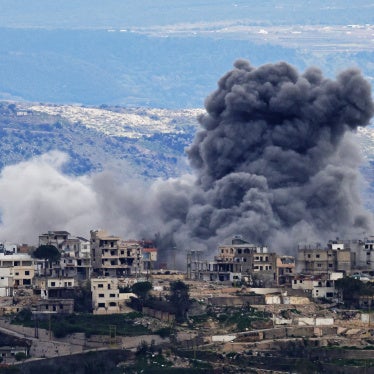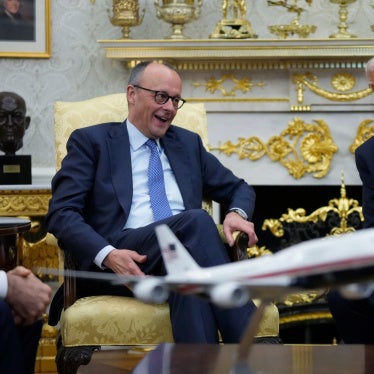Despite all its recent progress, Indonesia remains far from a fully functioning democracy. Religious intolerance is on the rise. Military reform is stalled. The normal checks and balances that form part of any democratic society remain far from taking root. Thus when U.S. President George W. Bush visits Indonesia today, human rights needs to be high on his agenda.
That's not to deny the impressive progress already made in some areas. Topping the list are the credible multiparty elections of 2004 for the presidency and legislature -- unthinkable during former President Suharto's three decades in power. President Susilo Bambang Yudhoyono's administration has also started tackling corruption and overseen an impressive ceasefire and peace plan in Aceh.
But, in too many other areas, impressive rhetoric about the need for reform has not been matched by the reality on the ground. And Washington has lost much of its leverage to press for change: Citing shared national-security interests, U.S. Secretary of State Condoleezza Rice last year lifted congressional restrictions on American military assistance to Indonesia.
Those restrictions were meant to encourage Jakarta to bring to justice military officers implicated in human-rights abuses and to increase civilian control over the armed forces. But even after the 1999 massacre of more than 1,400 East Timorese by the Indonesian army and their local paramilitaries, not a single officer has been convicted of complicity. Many in Indonesia see this as a crucial test of whether President Yudhoyono's government is willing to rein in a military that has traditionally been allowed to operate above the law.
When it comes to civilian control over the armed forces, the situation is equally dire. A recent Human Rights Watch report found that the Indonesian military continues to raise money outside the government budget through corruption and a sprawling network of legal and illegal businesses. This self-financing undermines civilian control, contributes to abuse of power by the armed forces and impedes reform. Authorities have made little progress in implementing a 2004 law that attempts to address these problems.
It's a similar story when it comes to other human-rights issues as well. In February, Indonesia acceded to the two main international human-rights treaties, the International Covenant on Civil and Political Rights and the International Covenant on Economic, Social and Cultural Rights. But current revisions to Indonesia's Criminal Code continue to criminalize defamation and free speech, with the key offending articles remaining in the new draft.
There's also been an alarming increase in religious intolerance, with a spate of attacks on Ahmadiyya mosques and Christian churches across Java and North Sumatra in the last year. Few have been prosecuted for these crimes. Instead, dozens of new Shariah-inspired local laws, mostly in Java, Sumatra and Sulawesi, have been enacted. Women are bearing the brunt of this rise in Islamic radicalism in some areas.
But perhaps the most significant indication of how far Indonesia still has to go on the human-rights front is the unresolved 2004 murder of the country's foremost human-rights defender, Munir Said Thalib. Pollycarpus Budihari Priyanto, a Garuda Airlines pilot linked to high-ranking intelligence officials, was convicted in 2005 of premeditated murder. However, the Supreme Court threw out the verdict in October 2006, and no one else has since been held accountable.
All of these are issues that President Bush could usefully raise when he sits down with President Yudhoyono today at the palace in Bogor, just outside Jakarta. There may be sound strategic reasons for an alliance with Indonesia, but they should not stand in the way of pressing these human-rights concerns.
Charmain Mohamed is a researcher on Indonesia for Human Rights Watch.








